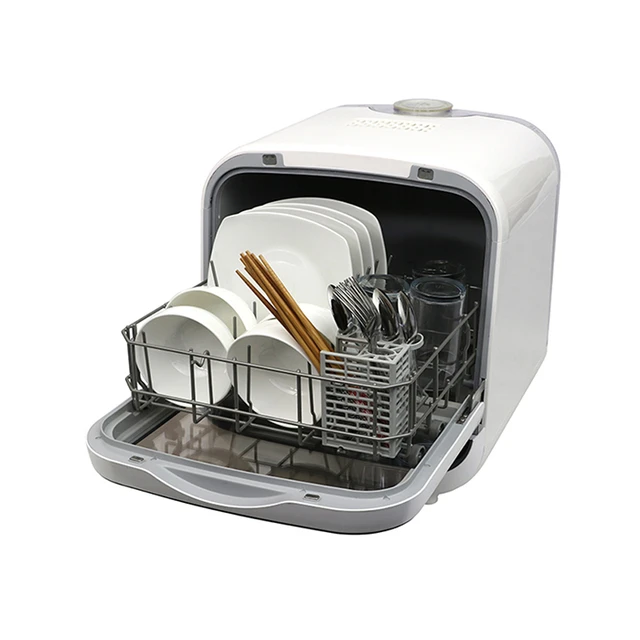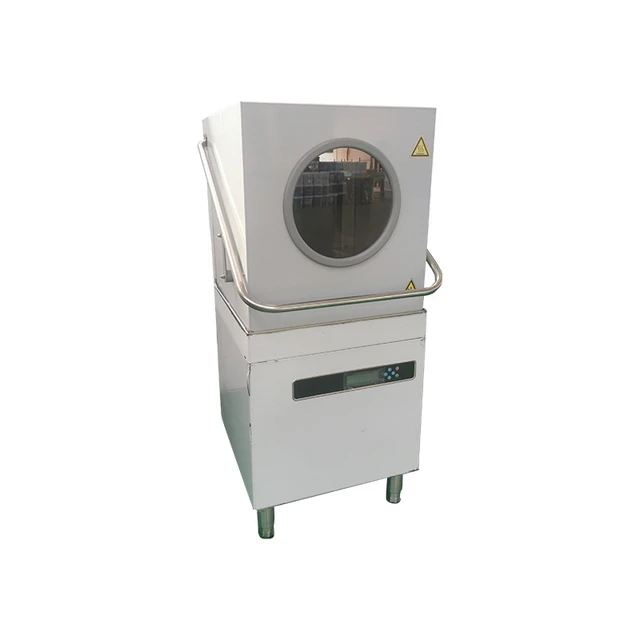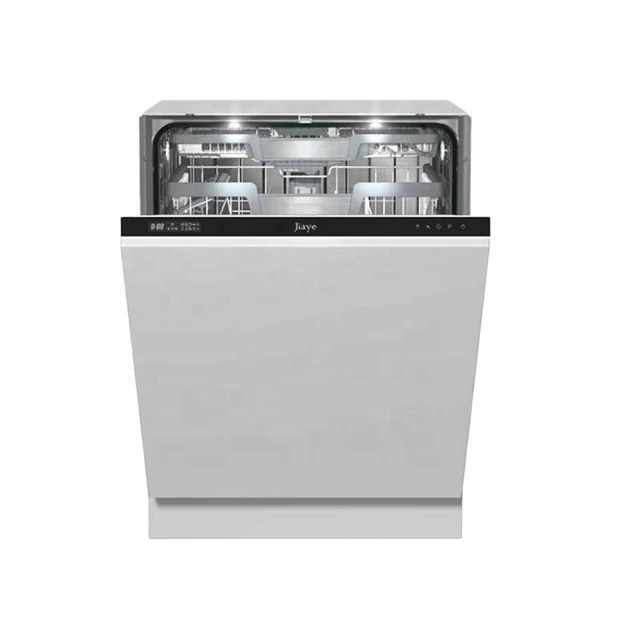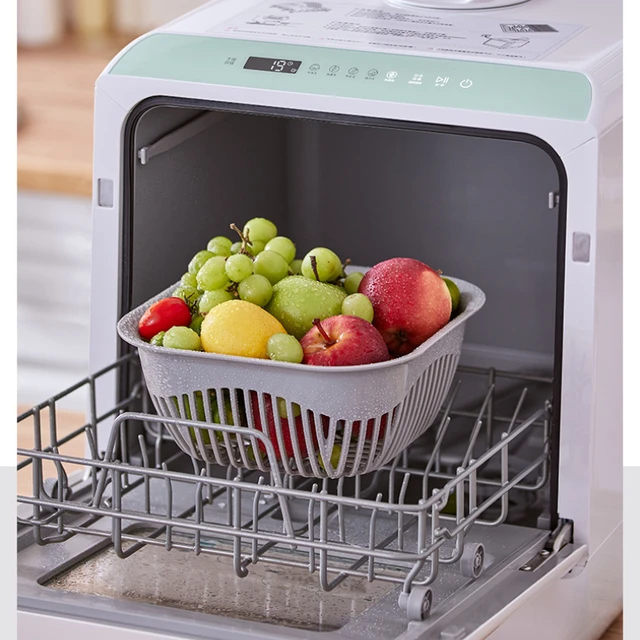Introduction
The dishwasher is a time-saving and convenient appliance that helps to clean and sanitize your dishes. However, a common question that arises is whether it is necessary to wash dishes before putting them in the dishwasher. In this guide, we will explore the importance and benefits of washing dishes before dishwashing, discussing factors such as food residue, dishwasher efficiency, hygiene, and energy conservation.

Should you wash things before putting them in the dishwasher?
Removing Food Residue
1.1. Preventing Clogs and Blockages
Washing dishes before loading them in the dishwasher helps to remove food residue that may cause clogs or blockages in the dishwasher’s drainage system. Larger food particles or grease can accumulate and hinder the proper functioning of the dishwasher, leading to reduced performance and potential damage.
1.2. Enhancing Dishwasher Efficiency
Pre-rinsing dishes helps to optimize the efficiency of the dishwasher’s cleaning process. By removing excess food particles, the dishwasher can focus on effectively cleaning, sanitizing, and rinsing the dishes. This results in cleaner and more hygienic results while conserving water and energy.
Improving Hygiene and Sanitation
2.1. Eliminating Bacteria and Germs
Washing dishes before dishwashing helps to eliminate harmful bacteria and germs that may be present on the dishes. By removing food residues, you reduce the chance of bacterial growth during the dishwasher cycle, ensuring that your dishes are thoroughly sanitized and safe for use.
2.2. Minimizing Cross-Contamination
Pre-rinsing dishes assists in reducing the risk of cross-contamination. When dishes with food residues are placed in the dishwasher, there is a higher chance of spreading bacteria or allergens to other items in the dishwasher load. Washing dishes beforehand helps to minimize this risk and maintain better overall hygiene.

Preserving Dishwasher Components
3.1. Protecting Spray Arms and Filters
Food particles that are not properly rinsed off dishes can accumulate in the dishwasher’s spray arms and filters. Over time, this buildup can lead to reduced water flow, clogging, and decreased efficiency of the dishwasher. By washing dishes beforehand, you help to protect these important components and extend the lifespan of your dishwasher.
3.2. Preventing Scale and Mineral Deposits
Certain types of food residues, such as starches or hard water minerals, can leave deposits or scale on dishes, glassware, and dishwasher components. By rinsing dishes before loading them, you reduce the risk of mineral deposits building up on your dishes and on vital dishwasher parts, sparing you from the need for frequent descaling or maintenance.
Energy and Water Conservation
4.1. Optimal Dishwasher Performance
Washing dishes before loading them allows the dishwasher to function optimally and efficiently. By removing excess food particles, the dishwasher can operate at the appropriate temperature and cycle duration, resulting in energy savings and reduced water consumption.
4.2. Water and Energy Efficiency
Pre-rinsing dishes helps to conserve water and energy. By removing food residues before loading, you can avoid the need for longer or more intensive dishwasher cycles, reducing the amount of water and energy required for each wash.

Tips for Efficient Dishwashing
5.1. Scraping Over Pre-Rinsing
Instead of fully rinsing dishes, consider scraping off excess food into the trash or compost. This reduces the amount of food residue entering the dishwasher while saving water and time.
5.2. Soak Stubborn Stains
For dishes with stubborn stains or dried-on food, consider soaking them in warm soapy water before loading them into the dishwasher. This will loosen the residues and make them easier to remove during the dishwasher cycle.
5.3. Load Properly and Follow Manufacturer’s Guidelines
To ensure optimal dishwasher performance, load dishes according to the manufacturer’s guidelines. Arrange items properly, leaving enough space for water and detergent to circulate. By following these recommendations, you can maximize efficiency and cleanliness during the dishwashing process.
Dishwashing for Different Dish Types
6.1. Delicate Glassware and China
For delicate glassware and china, it is often recommended to wash them by hand instead of relying solely on the dishwasher. These fragile items may be more susceptible to damage or breakage in the dishwasher, especially if they are not specifically labeled as dishwasher-safe. Handwashing ensures greater control and gentler handling.
6.2. Nonstick Cookware and Utensils
Nonstick cookware and utensils are typically not recommended for dishwasher use. The high heat and abrasive action of the dishwasher can damage the nonstick coating over time. It is best to hand wash these items to preserve their nonstick properties and prolong their lifespan.
6.3. Wooden Utensils and Cutting Boards
Wooden utensils and cutting boards should also be hand washed. The high temperatures and prolonged exposure to water in the dishwasher can cause the wood to warp or crack. To maintain their integrity and prevent bacterial growth, hand washing with mild soap and immediate drying is recommended.

Exceptions to Pre-Rinsing
7.1. High-Performance Dishwashers
Some high-performance dishwashers are designed to handle heavily soiled dishes without the need for pre-rinsing. These models feature powerful jets, increased water pressure, and advanced sensors that can effectively clean dishes, even with some food residue remaining. Refer to the manufacturer’s guidelines to determine if your dishwasher falls into this category.
7.2. Time and Water Constraints
In certain situations, pre-rinsing dishes may not be practical due to time limitations or water scarcity. If you are hosting a large gathering or have limited water resources, pre-rinsing may not be feasible. In such cases, scraping off excess food and running shorter dishwasher cycles can help minimize the impact of not pre-rinsing.
Does pre-washing cause dishwasher clogging?
Pre-washing dishes before loading them into the dishwasher is a common practice for many individuals. The intention behind pre-washing is to remove excess food particles and debris from the dishes, ensuring a cleaner end result. However, there is a common misconception that pre-washing can cause dishwasher clogging.
In reality, pre-washing dishes does not typically cause dishwasher clogging. Modern dishwashers are designed to handle food particles and debris, thanks to the presence of filters and drain systems. These components are specifically designed to trap and remove food particles during the wash cycle, preventing them from clogging the dishwasher’s internal mechanisms.

Conclusion
Washing dishes before loading them into the dishwasher offers numerous benefits, including improved hygiene, enhanced dishwasher performance, and energy and water conservation. By removing food residue, you prevent clogs, enhance sanitation, and minimize the risk of cross-contamination. Additionally, pre-rinsing dishes helps to preserve dishwasher components, reduce mineral deposits, and optimize energy and water usage. By following some simple tips and adopting efficient dishwashing practices, you can ensure cleaner dishes, prolong the lifespan of your dishwasher, and contribute to a more sustainable and hygienic kitchen environment.


